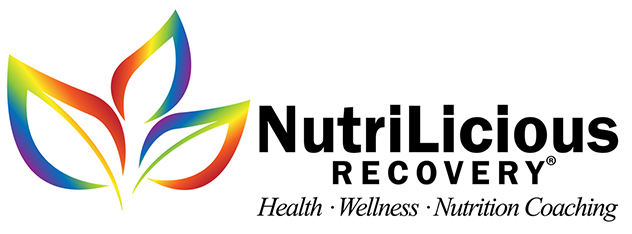


My Break-up is Official
-with sugar! In the United States, 88 million adults—more than 1 in 3—have prediabetes, but more than 84% don’t know they have it (CDC). Diabetes is the 7th leading cause of death in the US, and it’s also the #1 cause of kidney failure, lower-limb amputations, and adult blindness.
Classis symptoms include
- Urinate a lot (often at night)
- Are very thirsty
- Lose weight without trying
- Are very hungry
- Have blurry vision
- Have numb or tingling hands/fee
- Feel very tired
- Have very dry skin
- Have sores that heal slowly
- Have more infections than usual
If you feel like you could be in a high-risk group for pre-diabetes, your health care practitioner can do blood tests to get more information:
- An A1C test measures average blood sugar level over the past few months
- A fasting blood sugar test measures blood sugar after an overnight fast
- An oral glucose screening test measures blood sugar after drinking glucose
People that are higher risk for diabetes (Types 1 & 2, pre-diabetes, & gestational) have multiple risk factors below:
- Overweight
- Older (> 45 years for prediabetes, > 25 years for gestational)
- Family history of diabetes or gestational diabetes
- Are physically not as active (< 3x/week)
- Have birthed a baby weighing more than 9lb
- African American, Hispanic/Latino American, American Indian, Alaska Native, Pacific Islander, or Asian American
There are people suffering every day, and the numbers keep rising. Please join me in breaking up with sugar – it doesn’t have to be a radical break-up with significant withdrawals… plan for a gentle reduction and substituting those decadent desserts into less sugar-filled ones. It’s all about progress, and we really have to start somewhere… If you want help with meal planning and satisfying your sugar cravings, give me a call and let’s see how we can co-author your breakup with sugar!

Ghee vs Coconut Oil
Ketogenic diets are the current trend, and people want to learn more about which fats are better for you compared to others. While I’m not a BIG believer of long-term ketogenesis, I have seen that the body performs well during ketogenesis; and I know that keto diets work for short-term weight-loss. And I love when bodies are in a fat-burning mode, because healthy fats are REALLY where it’s at for optimally fueling our brains.
Many decades ago I remember my teenage-self making a weight loss goal, and deciding I needed to cut down on fats. I declared to my family, “no more ghee!” Ghee is a clarified butter (healthy fat) made by heating butter and removing the milk solids. It’s better tolerated because it removes the lactose and casein. Its origin is India, so what I had just announced did not bode well for my Indian household. My grandmother looked up at me and promptly informed me that was a bad idea for my bones and brain. Not seeing any logic to how a little fat in a food was going to help my bones or my brain, I explained to her the western science of cutting down fat to lose weight. My grandmother laughed at me and explained the eastern science of ensuring adequate healthy fats in the body to “lubricate” the bones and brain. I didn’t understand nor believe her… after all I was the SCIENTIST! Fast forward decades, and it turns out… grandma was right! It’s really important to consume healthy fats like ghee for fueling our brains and bones, as well as our skin, hair, and digestion. Today Western science has trials underway to better understand the benefits of healthy fats (especially ghee vs. coconut oil). Ghee contains vitamin K2 which is important for calcium absorption and bone strengthening; and it’s also a great skin moisturizer.
Coconut oil has also been BIG since keto diets have trended and especially after Bulletproof Coffee hit mainframe America. People want their MCTs (medium chain triglycerides) and coconut oil has them! MCTs are the key to getting the body into ketosis, and known for improving brain health, decreasing insulin resistance, decreasing inflammation, and promoting weight loss. And it has unofficially been reported that coconut oil has some benefits regarding Alzheimer’s, Dementia, heart disease, diabetes, autoimmunity, and cancer.
The question that logically comes next is… which fat is better? As an adult woman I’m not going to disrespect ghee (like I did as a teenager). Both coconut oil and ghee have a lot going for them in terms of healthy fat advantages, but both have distinct nutrient profiles.
- One of the main fuels for building cells in the intestine is Butyric Acid. It’s also important for digestive health, decreasing inflammation, and improving IBS issues. Butyric acid is abundant in ghee, and not found in coconut oil.
- MCTs benefit our gut microbiome, so can improve overall digestion. Coconut oil contains 60% MCTs and ghee is 25% MCTs.
So coconut oil may be a better fat for brain health, but ghee seems to be a better fat for digestive health. So it depends upon which goal you desire more. Or… you could combine both the ghee and coconut oil and get BOTH benefits! Some health food stores have already mixed both and offer them together.
Current food specialists warn about the consumption of excessive saturated fats. Both ghee and coconut oil fall into this category. So before changing your diet and lifestyle, always talk to your health practitioner or integrative physician and ensure there are no issues or contraindications with the desired change.

Rheumatoid Arthritis & Diet
Rheumatoid arthritis is an autoimmune disease that affects joints. Sufferers have progressive joint damage along with pain and stiffness. It affects women three times more than men.
But there is hope. There are medications that halt the progression by slowing down immune responses. While that doesn’t sound great at a time of COVID19, the medications work and people are able to resume a “normal” life. There has also been success in alternative remedies (diet changes) as well.
People trialed a vegan diet for 3.5 months, and then switched to an egg-free lactovegetarian diet for 9.5 months. The result showed SIGNIFICANT improvement in morning stiffness (in as fast as 4 weeks), grip strength, joint tenderness, swelling, and a drop in disability. Some weight loss was also seen (bonus!). The reason behind the improvement is that their chronic inflammation reduced (seen in inflammatory markers in their blood).
But how could diet affect RA? It’s an autoimmune condition. I use an example in my book, RIGHT Diet for Autoimmunity, where autoimmunity is simply a case of mistaken identity. The body is fighting foreign invaders. It’s normal. But sometimes in the case of mistaken identity, we get a horrible accident – like friendly fire. We accidentally hurt one of our own.
There is this bacteria, Proteus mirabilis, that’s sometimes found in urine (more women than men). In some cases this bacteria triggers an immune response. There is a molecule in this bacteria that somewhat resembles molecules in our joints. So when an immune response launches we have anti-Proteus antibodies (against the bacteria) that inadvertently may begin the process of damage to the joint tissues. And then the process keeps progressing. What started out as a very normal defense process turns into a life-long battle that never was supposed to be.
Researchers wondered what would happen if we could remove that bacteria from RA sufferers; would that cause a decrease in the inflammatory process? Typically a bacteria causes an inflammatory response after some type of infection (like a UTI). That infection is the result of bacteria coming from fecal flora into the bladder. So, the high impact change would be to change the fecal flora…and that can be accomplished by changing our diet!
So you see … step by step… the high impact changes can come from diet tweaks (changes in our gut flora). For over 2 decades we’ve studied gut flora and have seen when people shift away from the standard American diet to a vegan or vegetarian diet, there are SIGNIFICANT changes in the microbiome. We’ve also seen that plant-based diets showed a significant drop in anti-Proteus antibodies, in fact as a bonus there were other beneficial changes to the urine’s composition when shifting to a plant-based diet (like higher number of anti-cancer lignans).
While we see a PROFOUND influence from diet and RA being treated with vegetarian diets, people still need more support and education to learn how to stay on a plant-based diet. That’s where health coaches, nutritionists, dieticians, and nutritional therapists can help to support people until good practices, meal plans, and food choices become NATURAL HABIT!
If you know someone suffering from RA, tell them there is hope with shifting to a plant-based diet and you know a great nutritional therapist that can help them explore a new way of eating!

Visualizing Fasting Benefits
I’ve recently attended a fasting summit workshop (virtually), and learned quite a bit more about fasting that my Indian culture and background always hinted at.
Fasting has been happening since the beginning of man – the cavemen and women were cycling through periods of feasting and famine. All religions of the world have some time period where food is restricted or one is asked to limit it for a given time duration. This is not a new subject. What is new is that this act of food restriction seems to provide real benefits with autoimmune conditions provided that some conditions structure the practice:
- Rheumatoid Arthritis: Fasting followed by a vegetarian diet helps with symptoms, decreases intestinal permeability, & produces significant long term benefits.
- MS: A weekly diet that mimics fasting (FMD) may not only provide benefits in symptom reduction, but may also begin to reverse the damage of the disease (shown in experimental mouse models of MS). Continued fasting cycles are required to maintain all clinical benefits.
- Lupus, MS, Psoriasis, RA, UC: Significantly reduces levels of leptin which usually is pro-inflammatory in these specifically cited and more autoimmune conditions.
Some of the other findings show that fasting:
- Provides a reprieve from normal intensive demands of digestive process.
- Reduces inflammation
- Helps with oxidative stress
- Reprogram energy metabolism
- Increases parasympathetic nervous system function
- Improves brain-gut axis
- Improves intestinal motility
- Improves blood flow
- Improves gastric secretions
- Reduces heart rate
- Reduces blood pressure
- Improves overall immunity
- Suppress autoimmune pathogenesis with REGULAR FASTING CYCLES.
- Promotes autophagy of dead or damaged cells, which may help avoid neurodegenerative disease.
- Enhances executive brain function and cognition
- Improves ketone production
- Improves insulin sensitivity
- Promote metabolic correction
- Synchronizes circadian rhythm biology, improving sleep, which helps with detoxification in autoimmunity
- Reprogram body weight regulation
- Encourage a healthier composition of microbiota populations, positively impacting energy and immunity
So is fasting a go for everyone? No, there are some categories of folks that fasting a not an option for, including:
- People on certain medication (meds for diabetes, seizures, and steroids)
- People with diabetes type I
- Pregnant or nursing women
- Infants and young children
- People with eating disorders
- Anyone severely underweight
- Women who experience symptoms of hormonal imbalance after starting intermittent fasting: irregular periods, moodiness, irritability; lower calorie consumption can disrupt hormones, which are required for ovulation and a healthy pregnancy
- Extreme athletes
- Women on their menstrual cycle
If your doctor thinks it could be a good options for you to try intermittent fasting, seek out a health coach to help you on this journey, because there are some tweaks to enhance the benefits from fasting!

Mushroom Coffee… Seriously?
Sounds awful… but many are enhancing their cup of Java – not for flavor, but to increase health benefits. There are several different ideas floating around… Mushroom coffee is one that seems to have gained popularity, as now some cafes across the country are carrying it.
Mushroom coffee is basically a regular coffee that has been combined with powerful medicinal mushrooms, such as cordyceps, lion’s main, and chaga, to boost health benefits and brain function. Can there really be merit to this fad?
Benefits
- Lion’s Mane may help decrease depression and anxiety, and help with mild cognitive impairment, a precursor to dementia.
- Chaga may enhance immunity.
- Cordyceps may help control blood sugar.
- Shiitake mushrooms may help prevent arterial plaque formation, helping circulation.
Side Effects
One should ALWAYS consult their doctor before taking any supplements.
- Mushroom coffee can interact with various drugs and prescription medications.
- For some people, the caffeine in coffee can cause jitteriness, nervousness, insomnia, and nausea. For some people, mushroom coffee can cause IBS type of symptoms.
- There are rare cases of side effects with medicinal mushroom supplements. One example of an adverse reaction involves Reishi mushrooms. It was linked to fatal hepatitis for a small percentage of consumers. Researchers attribute this to some interaction with prescription medications.
Special note that this is a new concept to the US, and mushroom coffee has not been studied directly in controlled scientific studies, so optimal dosages for coffee in combination with medicinal mushrooms have not been established. Nutritionists have referred to the recommended doses of coffee and respective mushrooms separately to create this products for the effective purpose of boosting immunity and cognitive function.
Available Products
I believe mushroom coffee is great during flu season (or a pandemic/endemic) or for anyone with a compromised immune system due to its immune-boosting properties. I especially like the easy delivery system for those of us with a daily habit of a hot beverage in the mornings. I don’t get any incentives for talking about these products, but I do use the last one mentioned!
- Four Sigmatic Mushroom Coffee Mix is ideal if you want to swap in mushroom coffee into an already-established coffee routine, and can be made with any standard coffee maker. You can even use it to make a cold brew if that’s what you prefer.
- SOLLO Chaga Immunity is a K-cup style mushroom coffee that combines arabica coffee with chaga mushroom extract.
- Four Sigmatic Mushroom Coffee Instant Mix is best-suited for making instant coffee on the go. It contains a blend of lion’s Mane, chaga, rhodiola and instant coffee powder.
- Super Organics Energy Boost Coffee uses fair trade and organic coffee with extracts of cordyceps maca root, other herbals, and probiotics.
- Naturealm Mushroom Coffee Creamer (what I use) is a dairy-free creamer (coconut milk) with a blend of maitake, cordyceps, and lion’s mane, so you can turn your favorite coffee beans into a mushroom coffee. If you typically don’t use a coffee creamer, then this is not for you.


